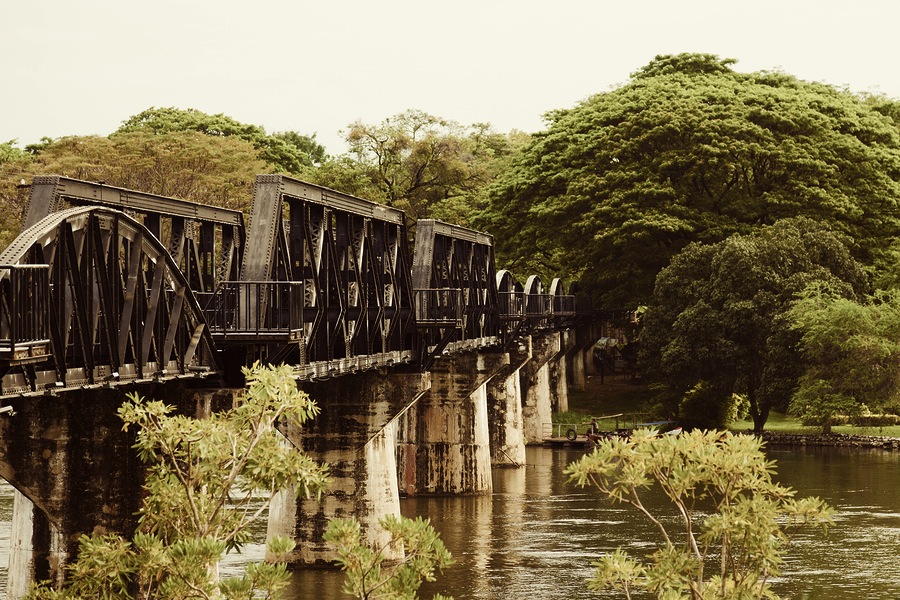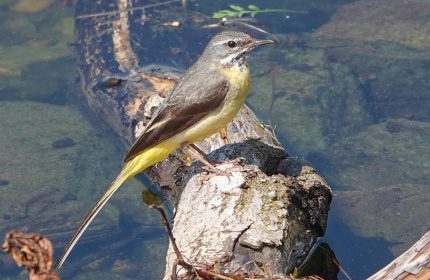A true account of life in Burma during World War II
A true account of life in Burma during World War II written by Bert Surridge, who is now 94 and living in Northants. He was a young man in the Army who was sent to Burma …
Firstly I joined up in 1938 and then for a few months of the war went all over the place.
Then in 1942 we went out to Burma, at least that was where we ended up eventually. We were in a convoy that was split into two parts and we were in the first ship of the second half. When we got to Freetown on the east coast of Africa we got the news that the first part of our convoy had sailed straight into Singapore and into the Jap hands. Our part was hastily diverted to go to first to Cape Town and then on to Bombay instead. We lost one ship that had all the division’s motor vehicles on it, off Durban. So for the first few months in India we had very few lorries and had to help out the Dirham light infantry who had lost all of theirs as well.
On the way out we were told not to worry about the Japs as they were little runts with bandy legs and so they couldn’t get around like us. They also nearly all wore thick glasses that they could hardly see through as well. It seems in the light of what followed that we were being led up the garden path by officers who just hadn’t a clue about the real state of affairs and yet, innocent as we were, we believed them. In England we all had seen copies of what the Germans looked like, but there were no pictures of the Japanese soldiers at all.
Eventually we got right into Burma to a place called Chittagong on the Burmese border where the Japs did a bombing raid on a nearby ammunition depot while we were unloading a ammo train as well! In reply to our questions we were told that while all the natives had scurried away to shelter as we were soldiers we had to stay out and hope for the best.
A few days later we were off to another place deep in the jungle and were told that we would be taken out by an old gunship to our waiting ready for a raid on a tongue of land known as Fort Darwin. We were actually loading up a barge with all our equipment when we were told that we had been led up the garden by a fifth columnist, the Japs had been informed that we were on our way and instead of us landing on a beach we would be wading through 300 yards of a very muddy mangrove swamp with the Japs in place with machine gun nests just waiting for us as well! Had we gone we would have been slaughtered to man. So we again had to wait for some days where we were in the jungle.
Eventually we had to march forty miles through a long, long night to near the front line, passing in the dark on our way a Japanese 25 pounder battery that we didn’t even see until they suddenly opened fire. I nearly needed a parachute to get back to earth again.
We were then positioned on the top of a hill known as the twin knobs. The next morning the batteries opened fire across the valley and the whole hill over there was covered in smoke and the flashes of explosions. Down on the coastal plain our brigade was attacking a Jap pill box made up of just tree trunks. My unit was, thankfully, in reserve. Suffice it to say that there were no tanks for us and we attacked with what we carried, with the result that we lost half of our brigade in just an hour and a half. Two General Grant tanks would be made mince meat of them but that wasn’t our way.
Would you believe me when I say that the British army always fights a war on the basis of one in the past, for we had our regimental flag flying over the tree tops so that the Japs could see who it was facing them. To help them further we had signs on all the pathways telling them where to go to which part of our unit that was up a path as well. In addition the Japs were great big blokes who each would have made mincemeat of me and certainly to this day I have the considered opinion they already had something the British army didn’t get till the late 60s – that was night scopes – for on one dark night the corporal and I were building up the parapet in the front of us so that we would be protected in order to shoot straight down into the valley below when I heard the chatter of a machine gun and I called out for us to get down and then watched while they sent stream of bullets against the back of the trench accurately. They must have had night scopes to be able to do that in such a dark night.
We never saw any of the RAF but plenty of the Jap Zeros. The RAF were very noticeable by their absence from anywhere near us at all. We were calling ourselves the forgotten army and it is still true to this very day. The Labour party could not wait until the war was over but pressed for a general election long before the war actually finished. After the war was over it was said that if we hadn’t dropped those atomic bombs the war could have gone on for another two years and we would have lost another 15,000 men as well. The ban the bomb brigade ought to think upon that, for although I was fortunately brought home because of my mother’s health I fully expected to find myself out there again in three months as well. My brother was killed in action while I was away from the unit. The Japs did what I knew they would do in the end. They came through large gaps in our defences and carved the unit up. They even broke into brigade HQ and we lost them as well. But by that time I was happily away out of it all.
Written by Bert Surridge
Latest posts by Sally - Silversurfer's Editor (see all)
- How to help hay fever sufferers make Springtimemore comfortable - April 1, 2025
- Win a cruise of your choice with Fred. Olsen Cruise Lines - April 1, 2025
- Win a 2025/26 Ashes Experience for Two! - April 1, 2025
- Win ONE of THREE pairs of tickets for BBC Gardeners’ World Live at the NEC Birmingham - April 1, 2025
- The best of Debbie Reynolds - March 31, 2025




















